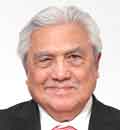GOING by all the publications, dialectics and analyses by doomsayers in social media, the pronouncements of the World Health Organization (WHO) and the Centers for Disease Control and Prevention, this column, predictive in one sense, should logically be written only in the year 2021, when the world has seen its way clear through, before the near annihilation of the human race has come to pass.
I will add my voice to the cacophony, not as an alarmist, but as a member of the most vulnerable segment of society that is bearing the pandemic’s brunt — the seniors with “preexisting health conditions.” By definition, the elderly are a repository of numerous illnesses over time. Death is inevitable, the cliché goes. But not this way! I have witnessed the passing of friends, their wives and kin, but I couldn’t pay my last respects as their remains were sent posthaste to the crematoria. Grief transmitted through Facebook, Messenger and Viber is the new kind of normal; as physical distancing precludes wakes and the traditional “lamay,” renewal of old friendships and catching up during such engagements. And no more nine-day novenas of final goodbyes to write finis to the departed’s life as dictated by centuries of tradition. Lockdown and social distancing have prevailed.
Continue reading with one of these options:
Ad-free access
P 80 per month
(billed annually at P 960)
- Unlimited ad-free access to website articles
- Limited offer: Subscribe today and get digital edition access for free (accessible with up to 3 devices)


